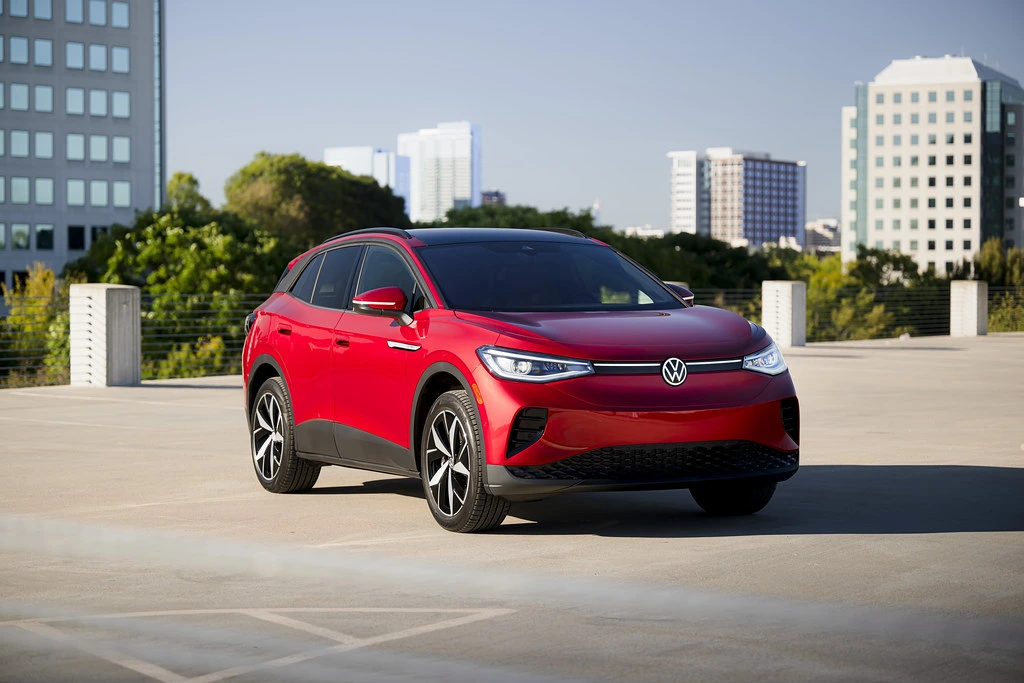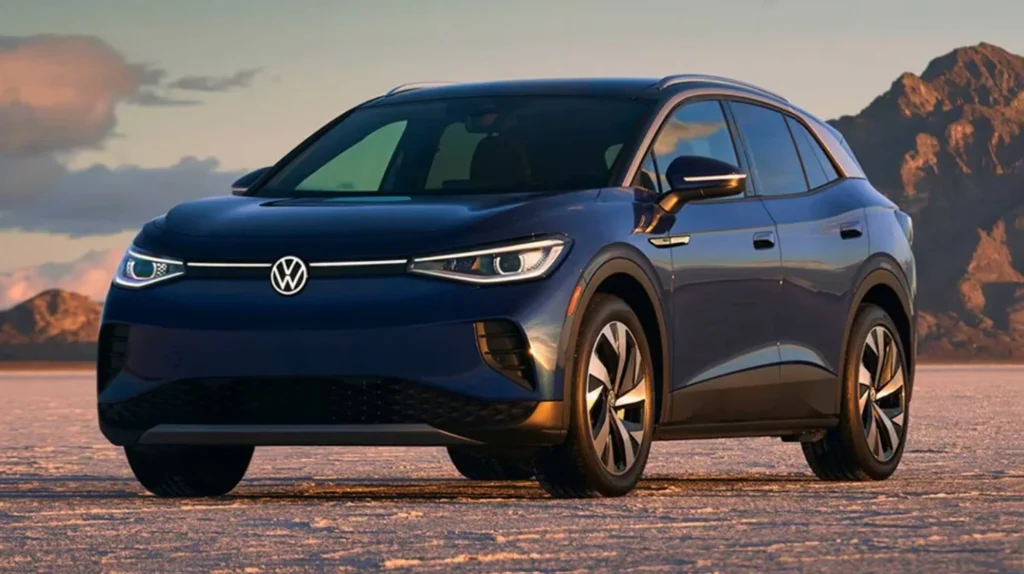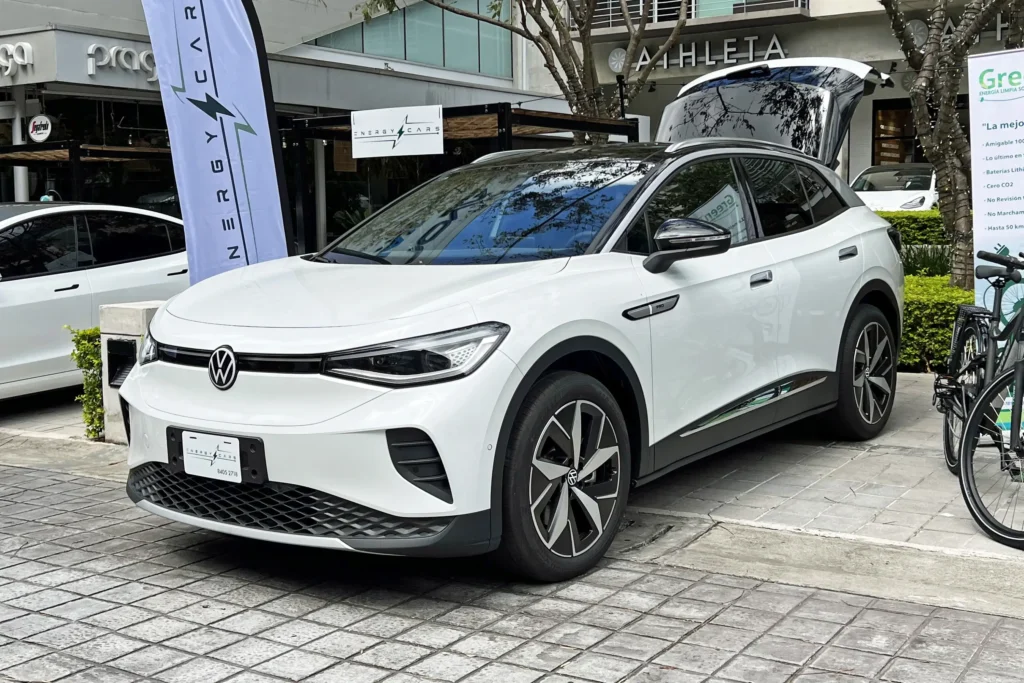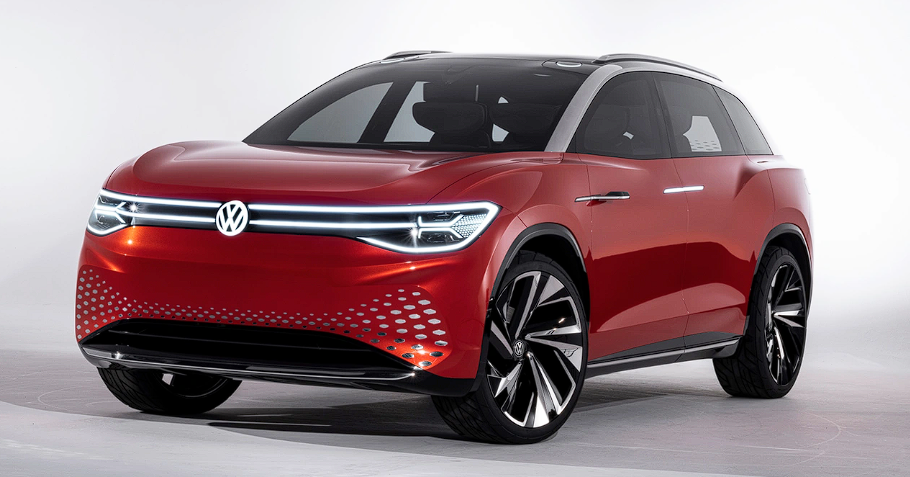Table of Contents
🎨 Introduction
Volkswagen is aggressively entering the booming EV market with accessible, advanced electric cars like the ID.EVERY1. Through strategic partnerships and electrified classic models, the German automaker commits to sustainability and innovation, transforming the EV landscape.
🔋 Push for Affordable Volkswagen Electric Cars

Volkswagen understands that for EVs to become truly mainstream, affordability is key. Even today, one of the biggest hurdles stopping consumers from making the switch to electric vehicles is the price tag. Recognizing this, Volkswagen has announced plans to launch a truly budget-friendly EV priced around €20,000 ($21,500) by 2027.
This is no small feat. Lowering the production cost of EVs, especially batteries, has been a massive challenge for the entire automotive industry. Batteries typically account for 30–40% of an EV’s total cost. To solve this, Volkswagen is working on a series of measures:
- Reducing reliance on expensive raw materials like cobalt.
- Scaling up in-house battery production.
- Securing long-term deals with lithium suppliers to stabilize costs.
- Developing next-generation battery technologies that are cheaper and more efficient.
The budget EV is aimed primarily at the European market initially, where stricter emissions regulations and growing urbanization make small electric cars extremely attractive. However, Volkswagen also has its eyes set on emerging markets like India and South America, where affordable EVs could open up massive new customer bases.
By betting big on affordability, Volkswagen isn’t just making another EV—it’s aiming to create an EV for the masses, much like the Beetle democratized gasoline cars decades ago.
🚗 The ID.EVERY1 – A Budget-Friendly Urban EV
The upcoming Volkswagen ID.EVERY1 is more than just another hatchback—it’s a statement. With the ID.EVERY1, Volkswagen aims to redefine urban mobility for the electric era.
Key highlights include:
- ✅ Range: Offering up to 155 miles (250 km) on a full charge, perfect for city commutes, daily errands, and short road trips.
- ✅ Performance: Its 94-horsepower motor ensures peppy acceleration and a top speed of 81 mph (130 km/h), balancing performance with efficiency.
- ✅ Customization: Featuring a modular, minimalist interior, drivers can personalize dashboard layouts and center consoles according to their preferences.
The ID.EVERY1 is expected to sit on a shortened version of Volkswagen’s MEB platform, known internally as MEB Entry. This platform will allow for lower production costs while ensuring the solid build quality that Volkswagen is known for.
In terms of design, early concept images hint at a stylish, youthful appearance—with crisp lines, LED lighting signatures, and bold color options to attract younger buyers.
Affordability won’t mean compromise, though. Volkswagen plans to pack in features like advanced driver assistance systems (ADAS), wireless smartphone integration, and fast-charging capabilities to make the ID.EVERY1 competitive even against higher-priced rivals.
If successful, the ID.EVERY1 could become Volkswagen’s next global bestseller—modern, smart, and surprisingly affordable.
🤝 Volkswagen’s Partnership with Rivian
In a strategic move that caught many industry insiders by surprise, Volkswagen recently announced a $5 billion investment in Rivian, the American EV startup known for its adventurous electric trucks and SUVs.
This collaboration is not just about vehicles—it’s about building the future of automotive software. Together, Volkswagen and Rivian plan to develop a new software platform that will power next-generation EVs across both brands. The goal is to create a seamless user experience, combining vehicle control systems, infotainment, and autonomous driving technologies under one unified architecture.
Volkswagen’s current software arm, Cariad, has faced delays and setbacks. Partnering with Rivian allows Volkswagen to leapfrog these issues and integrate cutting-edge American innovation into its lineup.
But the partnership goes beyond technology. Both companies will share manufacturing insights to lower production costs, optimize supply chains, and potentially co-develop new EV models in the future.
Imagine a world where Volkswagen EVs have the rugged DNA of Rivian’s adventure vehicles but retain Volkswagen’s refinement and global accessibility. That’s the future both brands are chasing.
In an increasingly crowded EV landscape, smart partnerships like this could be Volkswagen’s secret weapon to outpace competitors and lead the new era of connected, electric mobility.
🌟 Electrifying Classic Models
Volkswagen’s heritage is rich with legendary models, and rather than letting them fade away, the company is breathing new life into these icons through electrification.
Upcoming Electric Versions:
- 🔹 Volkswagen up! EV: With a starting price of around £17,000 ($21,600), it will feature a 95hp motor and a practical 155-mile range—perfect for city driving.
- 🔹 Volkswagen Polo EV: Positioned at around £21,000 ($26,600), this model promises a sporty 226hp motor and an impressive 280-mile range, catering to young professionals and small families.
But that’s not all. Volkswagen has also confirmed that beloved nameplates like the Golf, Tiguan, and Passat will continue into the electric age, dropping the “ID” branding for a cleaner, more recognizable identity.
The decision to retain classic names bridges the gap between past and future, making it easier for existing Volkswagen fans to transition to EVs without feeling like they’re abandoning their favorite models.
Expect these reimagined classics to feature the latest tech too:
- Voice-activated controls
- Over-the-air software updates
- Semi-autonomous driving capabilities
- Sleek, futuristic interiors while retaining beloved exterior shapes
With this strategy, Volkswagen taps into decades of brand loyalty while positioning itself squarely in the EV revolution.
⚙️ Challenges and Recent Recalls
The road to EV dominance isn’t without potholes, and Volkswagen’s recent recall of over 60,000 EVs in the U.S. highlights the growing pains of this transition.
The recall stemmed from a gear indicator malfunction that could cause vehicles to roll unexpectedly if the parking brake wasn’t engaged properly. Models affected included the popular ID.4 crossover and the Audi Q4 e-tron.
Although Volkswagen acted swiftly—offering software updates and free inspections—the incident served as a stark reminder that quality control is critical when scaling EV production.
More broadly, Volkswagen faces additional challenges such as:
- Navigating strict new emissions regulations (especially in Europe and China).
- Managing supply chain disruptions, particularly for semiconductors and battery components.
- Defending its market share against aggressive competition from Tesla, BYD, and a flood of new Chinese EV makers.
However, Volkswagen’s resilience and proactive response to challenges show that it remains committed to learning, adapting, and excelling in the rapidly changing automotive landscape.
🚀 Volkswagen’s Dedicated EV Factories

Building the future demands new tools—and Volkswagen is building brand-new EV factories across Europe to meet demand.
The flagship facility, Trinity, located in Wolfsburg, Germany, is designed to be the most advanced car factory in the world. With an investment of over $2 billion, it will feature:
- Modular EV production lines.
- Highly automated, AI-driven manufacturing systems.
- Solar-powered energy sources to minimize carbon footprint.
The Trinity facility will focus on Volkswagen’s future flagship EV models, emphasizing software-defined vehicles with advanced autonomous capabilities.
Beyond Wolfsburg, Volkswagen is expanding its EV production at plants in Zwickau, Hanover, and Emden. These sites aim to produce more than 1 million EVs per year by 2026, making Volkswagen one of the largest EV producers globally.
These investments show that Volkswagen isn’t just building cars—it’s building a sustainable future.
⚡ Volkswagen’s Investment in Battery Innovation
Recognizing that battery technology is at the core of EV success, Volkswagen is heavily investing in innovation.
By 2025, Volkswagen plans to roll out Unified Cell technology—a standardized battery cell design for all its EVs, from compact hatchbacks to large SUVs. This innovation could slash battery costs by up to 50%, making EVs much more affordable.
Beyond that, Volkswagen is aggressively pursuing solid-state batteries through a partnership with QuantumScape. Solid-state batteries promise:
- Faster charging (up to 80% in 15 minutes).
- Increased range (up to 30% more compared to lithium-ion).
- Enhanced safety by reducing fire risks.
Volkswagen is betting that whoever masters battery technology will dominate the EV market—and it intends to be at the forefront of this race.
🛠️ Charging Infrastructure Expansion Plans
Range anxiety remains a significant barrier to EV adoption, and Volkswagen is tackling it head-on.
Through its Electrify America network in the U.S. and Ionity in Europe, Volkswagen plans to build thousands of ultra-fast charging stations by 2027. These stations will offer:
- Charging speeds up to 350 kW (adding up to 200 miles of range in 15 minutes).
- Convenient locations at major highways, urban centers, and shopping malls.
- Renewable energy-powered charging to reduce environmental impact.
Volkswagen’s vision is simple: make charging an EV as easy and convenient as filling up a gas tank.
By focusing on both vehicles and infrastructure, Volkswagen is creating a complete EV ecosystem that supports customers at every step of their journey.
🤖 Volkswagen Teams Up with Uber
Volkswagen is taking a giant leap into autonomous mobility by partnering with Uber to roll out self-driving electric vans in the U.S. market. As part of the plan, Volkswagen will deploy thousands of autonomous ID. Buzz AD vans over the next few years, with test operations expected to kick off by late 2025. A full commercial rollout in Los Angeles could happen as early as 2026.
The ID. Buzz AD—essentially a futuristic, electric twist on VW’s legendary Microbus—comes loaded with autonomous driving tech developed by MOIA, Volkswagen’s own mobility division. Initially, these vehicles will operate with backup drivers onboard to ensure a smooth and safe transition as the technology matures.
For Uber, this partnership marks a bold step toward building an autonomous ride-hailing network that reduces costs and enhances service reliability. Meanwhile, Volkswagen gains a major opportunity to showcase its innovation in EVs and self-driving systems. Together, the two companies aim to redefine urban transportation, making it smarter, cleaner, and far more accessible.
🌍 Volkswagen Expands EV Production
Volkswagen is ramping up its global EV game by planning to export electric vehicles manufactured in China to emerging markets across Asia, South America, and the Middle East. This strategy not only maximizes the company’s production capacity but also taps into fast-growing regions where demand for electric mobility is rising.
To support this expansion, Volkswagen is working on a new modular vehicle platform that can accommodate both battery-electric vehicles (BEVs) and models with range-extending technology. This dual approach allows Volkswagen to adapt its offerings based on local market needs, giving it a strategic edge over competitors.
By leaning on China’s efficient production capabilities, Volkswagen is positioning itself to deliver cost-effective, high-quality EVs worldwide. This move is also seen as a way to stay competitive against Chinese EV makers, who are rapidly gaining influence in global markets. It’s clear that Volkswagen is playing smart — thinking globally, acting locally.
🏆 Volkswagen Overtakes Tesla
In a major win for the German automaker, Volkswagen has officially surpassed Tesla to become Europe’s best-selling EV brand in early 2025. According to the latest market reports, Volkswagen sold 65,679 electric vehicles in the first quarter of the year—a staggering 157% increase compared to last year. In contrast, Tesla’s European sales dropped sharply by 38%, totaling 53,237 units.
Volkswagen’s surge can be attributed to its expanded EV lineup, competitive pricing, and strong brand loyalty across the continent. Models like the ID.3, ID.4, and the upcoming ID.Every1 are attracting a wide range of buyers, from young urbanites to seasoned commuters looking to go green.
This shift marks an important milestone not just for Volkswagen, but for the entire European automotive landscape. It highlights how traditional automakers are catching up to EV pioneers and proving that legacy brands can indeed lead the charge into a more sustainable future.
🤝Volkswagen Boosts EV Plans in India
Volkswagen is betting big on India’s rapidly growing EV market. The company plans to start assembling its popular electric SUV, the ID.4, at its Aurangabad plant in Maharashtra. Production is expected to begin later this year, with a full launch anticipated shortly after.
But Volkswagen isn’t stopping at assembly. It’s also investing heavily in localization — working closely with Indian suppliers to build EV components domestically. This strategy will help lower manufacturing costs, making EVs more affordable for Indian consumers and boosting the brand’s competitiveness.
Additionally, Volkswagen has entered into a strategic alliance with Mahindra. Through this partnership, Mahindra will utilize Volkswagen’s MEB platform and unified battery tech for its upcoming line of electric SUVs starting in 2025.
These bold moves signal Volkswagen’s commitment to making India a key part of its global EV strategy. By focusing on affordability, local production, and partnerships, VW aims to capture a significant share of one of the world’s most promising EV markets.
🔥 Final Thoughts

Volkswagen is not just adapting to the electric future—it’s shaping it. From affordable, city-focused EVs like the ID.EVERY1 to revamping classics and building next-gen factories, Volkswagen is charging into tomorrow with confidence.
Strategic partnerships, innovative battery solutions, and a relentless focus on customer needs show that Volkswagen isn’t just competing in the EV space—it’s aiming to lead it.
For anyone watching the EV revolution unfold, Volkswagen’s journey will be one of the most exciting to follow.
❓ FAQs About Volkswagen’s Electric Future
1: When will Volkswagen’s ID.EVERY1 be available to consumers?
👉 The ID.EVERY1 is expected to launch in Europe in 2027, with possible expansion to global markets afterward.
2: Why did Volkswagen partner with Rivian?
👉 To leverage Rivian’s cutting-edge software capabilities and strengthen Volkswagen’s competitiveness in the global EV market.
3: Are Volkswagen’s classic models going fully electric?
👉 Yes, iconic models like the Golf, Tiguan, and Passat will transition to electric platforms without losing their traditional names.
4: What new battery technologies is Volkswagen developing?
👉 Volkswagen is working on Unified Cell technology and next-gen solid-state batteries to enhance performance and reduce costs.
5: How is Volkswagen addressing charging infrastructure needs?
👉 Volkswagen is expanding ultra-fast charging networks like Electrify America and Ionity to eliminate range anxiety for EV owners.
🚗 POLL: Would You Buy a Budget Volkswagen EV Like the ID.EVERY1?
Volkswagen is launching the ID.EVERY1—a compact electric car priced around €20,000 ($21,500)—aiming to make EVs truly affordable for the masses. With features like a 155-mile range, customizable interiors, and fast charging, it’s built for urban life.
What’s your take on this? 👇
1️⃣ Yes! Finally, an affordable EV I can consider buying.
2️⃣ Maybe – I like the concept, but I need to see real-world reviews first.
3️⃣ No – Budget EV or not, I’m not ready to go electric.
4️⃣ Only if it launches in my country at a similar price.
🗳️ Vote now and tell us why in the comments!
🔔 Stay Updated with TrendingDaily24
If you’re passionate about staying ahead in the world of electric vehicles, mobility trends, and groundbreaking automotive news, TrendingDaily24 has got you covered! 🚗⚡
👉 Follow TrendingDaily24 today to stay updated with everything you need to know about electric cars, autonomous driving, and the future of green mobility!
Check out our other articles: Skoda Kushaq Price Cut
Check out our post on X –Good Bad Ugly Review: Ajith’s Outstanding Performance

